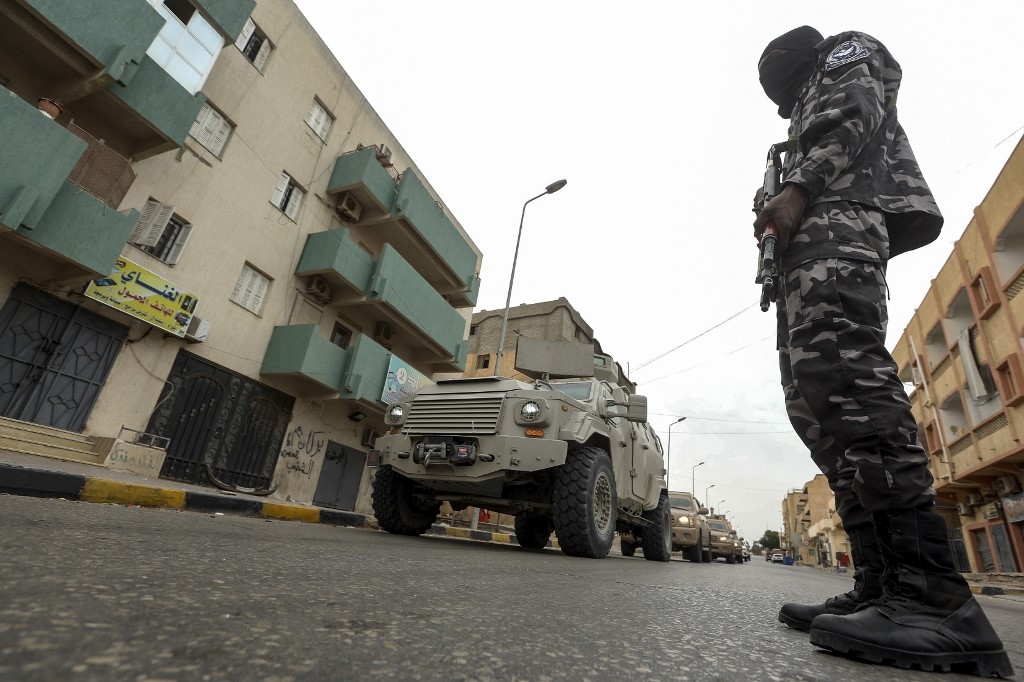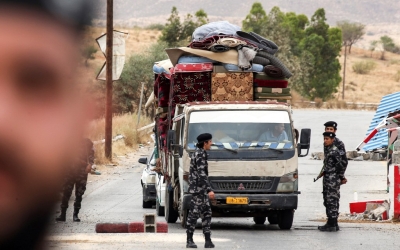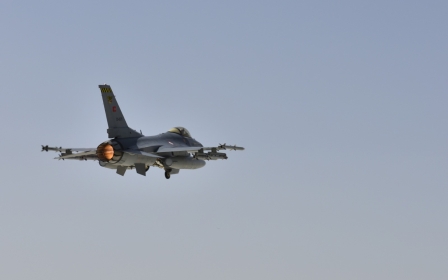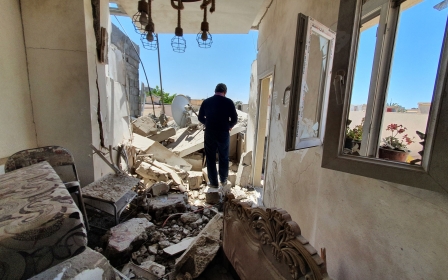US says 2,000 Russia-backed mercenaries are fighting in Libya

The United States says there are at least 2,000 Russian-backed mercenaries aiding Khalifa Haftar's offensive against Libya's internationally recognised government, about double the figure reported last month in a confidential UN report.
Nate Herring, a spokesman with United States Africa Command (Africom), told Middle East Eye on Tuesday that the 2,000 mercenaries are believed to be members of the Wagner Group, a private military contractor that has been accused of waging secret wars on the Kremlin's behalf in countries including Ukraine and Syria.
"I can confirm that US Africa Command estimates the Wagner Group has approximately 2,000 representatives in Libya," Herring told MEE.
The shadowy group, which has been accused of brutally killing civilians in war zones, is also believed to be active in Sudan and the Central African Republic, where it reportedly serves as President Faustin-Archange Touadera's personal security detail.
The US says that the Wagner group is state sponsored, but the Russian government denies any official involvement with the organisation.
New MEE newsletter: Jerusalem Dispatch
Sign up to get the latest insights and analysis on Israel-Palestine, alongside Turkey Unpacked and other MEE newsletters
Russia has repeatedly denied media reports that the Wagner group, believed to be owned by Yevgeny Prigozhin, a businessman with close links to Russian President Vladimir Putin, is operating in Libya, but the UN report claimed that the group had between 800 and 1,200 military contractors on the ground, including snipers and specialised military teams.
Since 2014, Libya has been split between areas controlled by the internationally recognised Government of National Accord (GNA) in Tripoli and territory held by forces loyal to Haftar.
Turkey, along with regional ally Qatar, has backed the GNA, while the Russian mercenaries, the United Arab Emirates and Egypt have supported Haftar.
Despite Russian support, Hafar's forces have suffered numerous defeats in recent weeks and were forced to retreat from the outskirts of Tripoli earlier this month, capping a sudden collapse of his 14-month offensive against the capital.
The defeat came a few weeks after the GNA captured the strategic al-Watiya air base, an important strategic foothold 160km (100 miles) southwest of the Tripoli.
Haftar's retreat, which erased many of his gains from last year, extended the GNA's control over most of northwest Libya and also saw them recover a Russian-made Pantsir air defence system, much to Moscow's embarassment.
Turkey and Russia were scheduled to hold ministerial-level meetings on the conflicts in Libya and Syria on Sunday, but the talks were suddenly postponed to "a later date".
Speaking to MEE, Herring stressed that the US was looking for a "political solution, not a military one", which is key to "solving the crisis in Libya."
"We recognise that a secure and stable Libya ensures regional security, and we remain in close coordination with the US State Department," Herring said.
'No denying it now'
Last month, Africom said that Moscow had deployed military aircraft to Libya to support the Wagner Group on the ground, but at the time did not provide an estimate of the number of mercenaries believed to be deployed there.
"Russia is clearly trying to tip the scales in its favour in Libya. Just like I saw them doing in Syria, they are expanding their military footprint in Africa using government-supported mercenary groups like Wagner," Africom commander Stephen Townsend said at the time
"For too long, Russia has denied the full extent of its involvement in the ongoing Libyan conflict. Well, there is no denying it now."
Earlier this month, a Reuters investigation found that the Wagner Group had accelerated its recruitment of Syrians to fight with Haftar's forces, signing up hundreds of mercenaries who had previously fought in Syria.
New recruits to the Russian-backed effort included 300 fighters from the Homs area and about 320 from Syria's southwest.
The Reuters investigation found that the Wagner Group had conducted the hiring under Russian army supervision.
Middle East Eye delivers independent and unrivalled coverage and analysis of the Middle East, North Africa and beyond. To learn more about republishing this content and the associated fees, please fill out this form. More about MEE can be found here.





